|
|
| |
| |
 |
ABOUT THE PROJECT
|
| |
|
 
 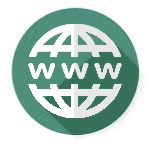
|
|
SENSES - STRENGTHENING SOCIAL ENTREPRENEURIAL LANDSCAPE THROUGH INVOLVING SOCIALLY RESPONSIBLE CORPORATE PRACTICES IN ENTREPRENEURIAL COMPETENCES AND SKILLS ENHANCEMENT IN THE DANUBE REGION
Project objectives:
- Empowering SEs through bridging public & private sector best practices
- Better engaging SEs with their ecosystems
- Creating an improved policy landscape for SEs
|
|
| |
 |
SYNERGIES WITH OTHER PROJECTS - THEMATIC POLE 3 ENTREPRENEURIAL LEARNING SYSTEM
|
 |
|
| |
 |
OUR SENSES PROJECT’S FIRST YEAR REVIEW WAS SUCCESSFUL
|
| |
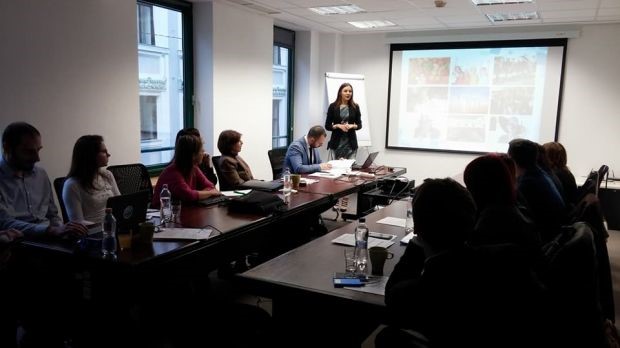 |
|
Our SENSES project’s First Year Review was completed successfully on the 31st January 2018. The event was organized at the official headquarters of IFKA Public Benefit Non-Profit Ltd. for the Development of Industry in Budapest. During the event, the participants reviewed the implementation of the thematic work packages by the leader of WP as well as forthcoming activities and deadlines. Furthermore, our colleague, Mária Baracsi, head of unit of international cooperation delivered a presentation on the capitalization activities carried out in the frame of the Thematic Pole 3 – Entrepreneurial Learning Systems.
|
|
| |
 |
SEMINAR AND STUDY VISIT IN CESKE BUDEJOVICE
|
| |
|
SENSES partners gathered in beautiful Ceske Budejovice on 13th and 14th February 2018 to jointly discuss next steps in the project and visit different social enterprises. We had a chance to get to know seven local social business and meet the owners. Most of the visited social business is sustainable and some even support other social initiatives. Hosts of seminar and study visit were project partners from RERA a.s., Czech Republic.
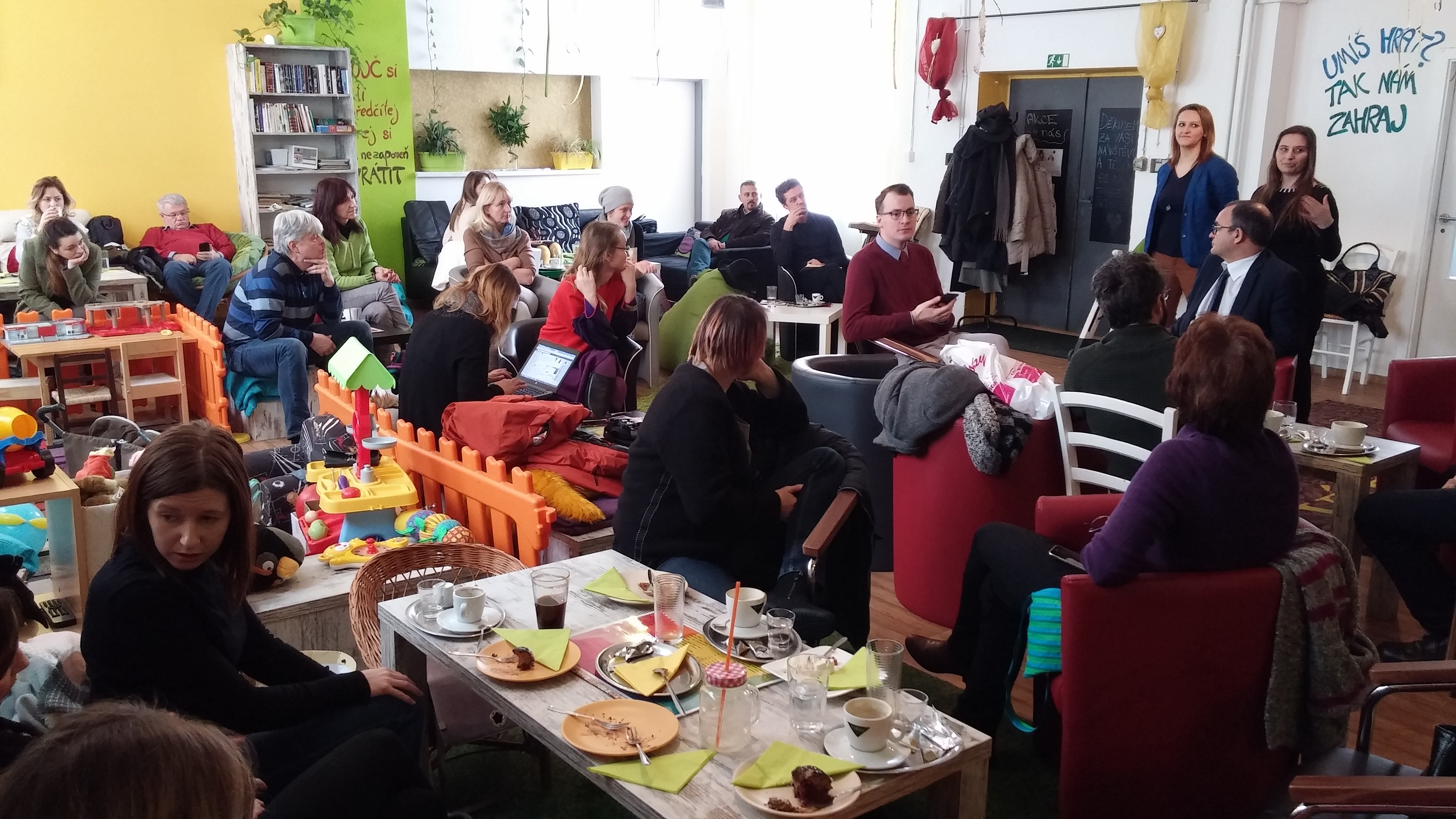
|
|
| |
 |
FIRST POLICY LEARNING DIALOGUE IN CROATIA
|
| |
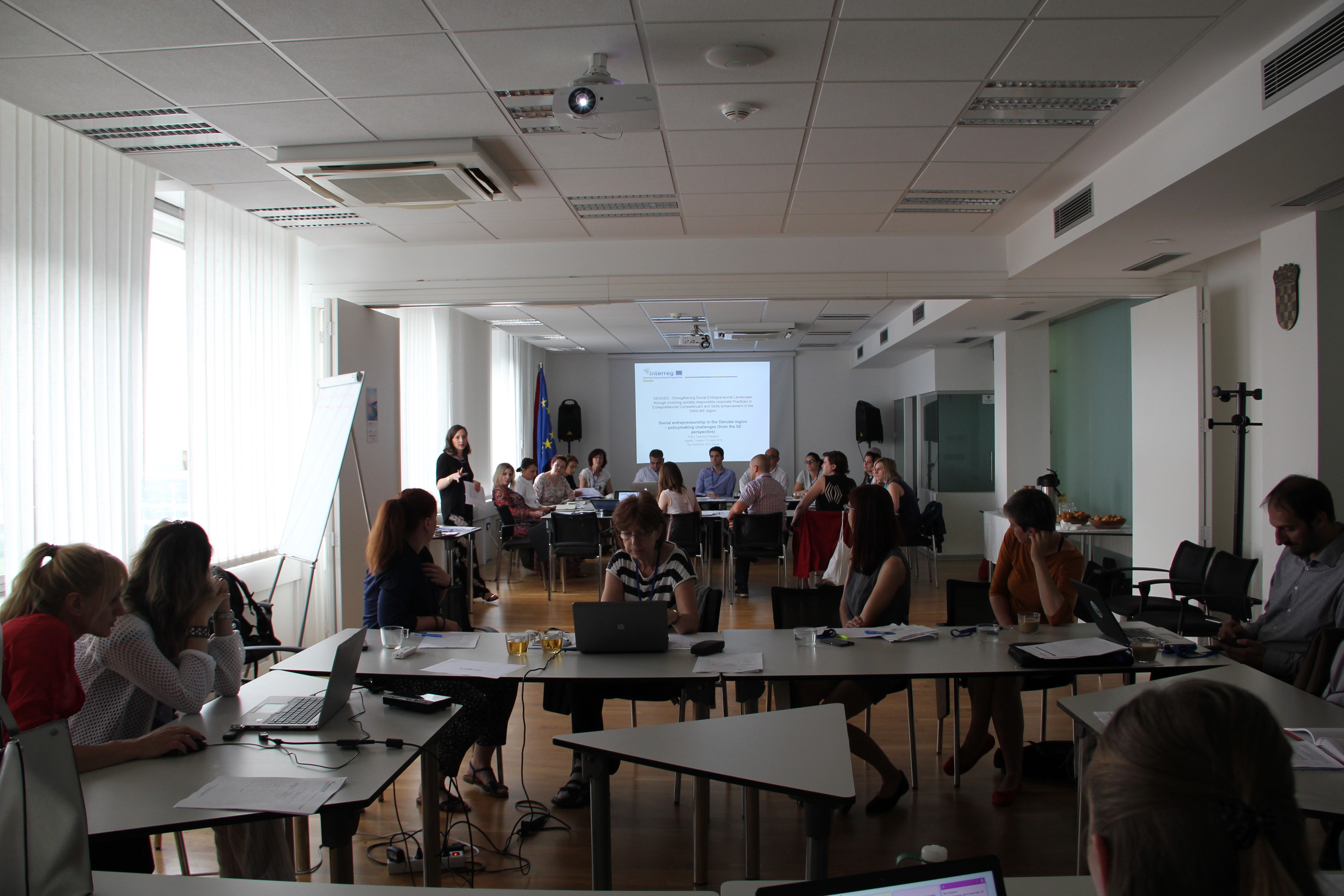 |
|
REDEA and IFKA jointly organized first Policy learning Dialogue in Zagreb on 12th and 13th June 2018. All partners participated along with policymakers from Czech Republic, Slovakia, Austria, Slovenia, Hungary, Croatia, Serbia and Romania. On first PLD ZSI Centre for Social Innovation introduced social entrepreneurial policy recommendations of the Danube region and results of benchmarking and skills gap analysis, IFKA presented an overview on the objectives of the Policy learning Dialogue. Afterwards, two parallel sessions about Policy challenges in the SENSES countries were organized in which both SENSES partner and policymakers discussed SE landscape and proposed actions for the Strategy.
|
|
| |
 |
SECOND RSM HELD IN ROMANIA, SLOVAKIA
|
| |
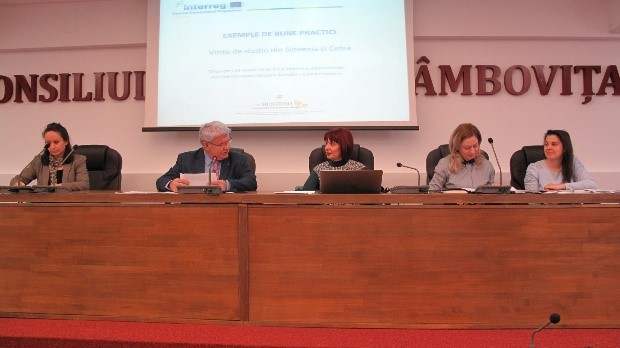 |
|
The second stakeholder meeting in Romania was attended by 25 representatives of the local public administration and the County Employment Agencies of the South Muntenia Region – entities in the field of authorization and monitoring of social enterprises at the local level, as well as representatives of social enterprises. The main issues highlighted during the meeting were: the lack of adequate social policies and legislation favourable to the development of the sector, the lack of collaboration between social enterprises and their ecosystem and also the training needs of the social entrepreneurs. SENSES partners are currently working on training materials that will be made to meet the need of the social entrepreneurs.
|
|
| |
 |
PRIVREDNA KOMORA SRBIJE INTRODUCED PROJECT SENSES
|
| |
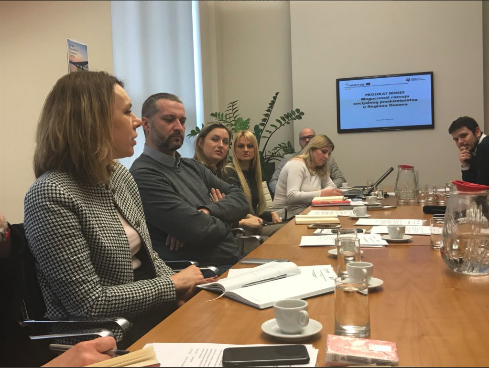 |
|
Privredna komora Srbije introduced project SENSES to Smart Kolektiv, IDC Serbia, Evropski pokret u Srbiji, Chamber of commerce and industry of Serbia, Ecobag, Bioidea, Safehouse Sombor, and Supernatural. They also talked about possibilities of social entrepreneurship in the Danube region.
|
|
 |
ACTIVE CITIZENS FUND IN ROMANIA
|
| |
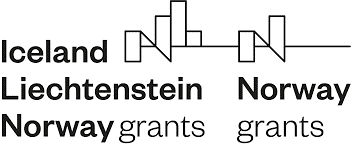 |
| |
|
A new financing source from the Norwegian Grants will be available soon for the development of the civil society sector. A Consortium composed of the Foundation for Civil Society Development, Partnership Foundation, Resource Center for Roma Communities, PACT Foundation and Frivillighet Norge (Norwegian NGO Association) was designated by Financial Mechanism Office as Fund Operator in a bidding process open and competitive and will be responsible for the development and implementation of the fund in Romania. The total value of the Active Citizens Fund (ACF) in Romania is EUR 46,000,000. The Active Citizens Fund objective is to "Strengthen civil society and active citizenship and increase the capacity of vulnerable groups". The Fund aims at the long-term development of the sustainability and capacity of the civil society sector, strengthening its role in promoting democratic participation, active citizenship and human rights. The Fund contributes to the general objectives of the EEA and Norwegian Grants to reduce economic and social disparities and strengthen bilateral relations between beneficiary and donor countries. Civil society support is a key priority for EEA and Norwegian Grants 2014-2021 granted by Iceland, Liechtenstein and Norway to 15 EU Member States in Central and Southern Europe and the Baltic States.
Please click HERE for more information.
|
|
| |
 |
THE SLOVAK SOCIAL ECONOMY AND SOCIAL ENTERPRISE ACT ENTERED INTO FORCE ON 1ST MAY OF 2018.
|
| |
 |
| |
|
The new law brings us a social enterprise in a much wider context than its legacy legislation from the Act on Employment Services. It changes from the narrowed work integration tool to the concept of socially beneficial services provided through economic or non-economic activity in a wide range of areas. The common and very important feature became achieving a positive measurable social impact delivered by the fulfilment of public or community interest. In case the enterprise or organization cannot or does not want to meet all legislative characteristics, in addition to the positive social impact it may choose at least one of others (engagement of stakeholders in the management or the 51% profit reinvestment into the main social objective) and become so-called enterprise with social reach. In this way also the ordinary enterprises have an opportunity to become a subject of the social economy. The law offers a direct assistance in the form of investment aid, compensatory financial assistance, income tax relief or service vouchers to support demand. The options are graded according to the status of the enterprise. Many social business professionals were involved in the law development. Let’s see how the new Act will be put into practice. Fingers crossed!
Please click HERE for more information.
|
|
| |
 |
NATIONAL BUSINESS CENTRUM SEMINARS FOR SOCIAL ENTREPRENEURS AND START-UPS IN SLOVAKIA
|
| |
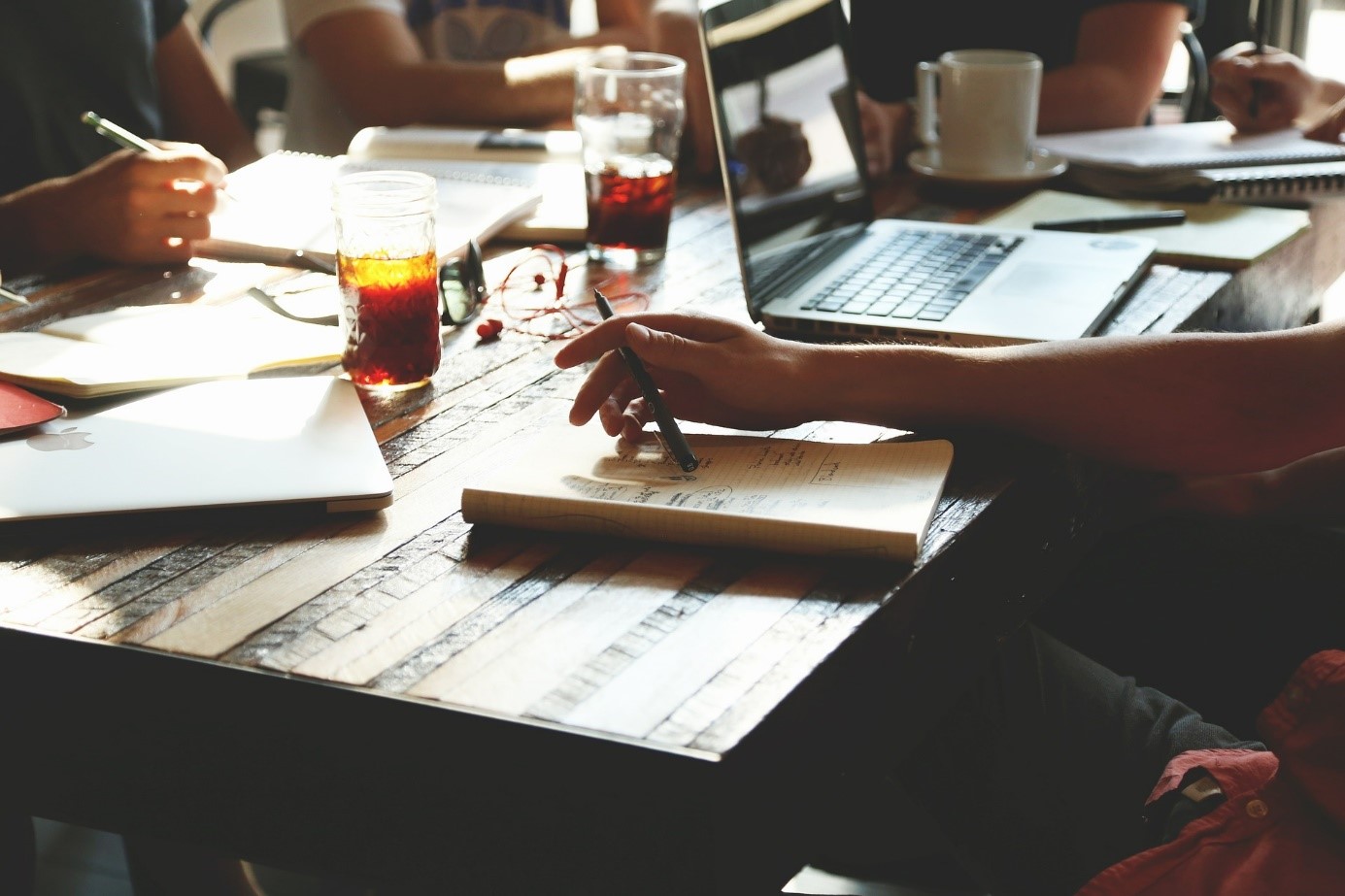 |
|
Slovak Business Agency organizes a series of seminars in its business centrum in Bratislava – a one-stop-shop which offers a broad portfolio of information and services tailored for Slovak SMEs. Last month potential and existing entrepreneurs had an opportunity to be introduced into the entrepreneurship within non-profit organizations. Participants learned about the possibilities of doing business in the third sector, the motivation behind or how to deal with financial income from their own business. The well-known social entrepreneur and innovator from the Green foundation also presented pros and cons of self-financing of non-profit organizations, how to choose the right business idea or how to develop a business plan. The next seminar covered the topic of the new social economy legislation – the latest adjustments, new definitions and conditions under which enterprises can be included in the social economy support system. Would-be entrepreneurs could also attend seminar focused on networking and finding new customer/suppliers and 5-day long course on business skills from different areas to help them start up own business.
|
|
| |
 |
STEP WITH US! UNICREDIT & NESST HUNGARY
|
| |
|
Last week NESsT had the first workshop about finances with the three social enterprises, with whom they are working together for a year in the Step with us program, sponsored by UniCredit. The three social enterprises already started their business and in this incubation program, NESsT and several mentors from the UniCredit Bank helped them to shape their business plan, expand their capacity and be more successful. The SEs are offering walking tours in Budapest, led by young Roma people - Uccu Foundation, manufacturing chutneys and other products from vegetables from local farmers - Kanálka, and operating a briquette production machine involving local Roma people in the rural area - Igazgyöngy Foundation.
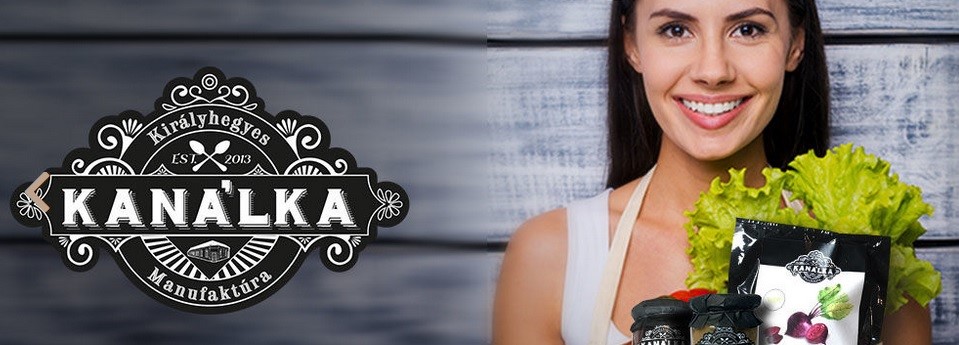
|
|
| |
 |
TRIAL PITCH WITH BADUR FOUNDATION IN AUGUST
|
| |
|
In August NESsT has one of the main event of their Sprigboard program, together with BADUR Foundation. Five social enterprises are going to present their business idea before the real pitch in September. In the rehearsal, they will be supported by the members of NESsT's Business Advisory Network, and will get some feedback to use it their final presentations. The jury will decide about 10 million HUF in September, so one of them could realise their business plan from this seed money.
Please click HERE for more information.
|
|
| |
 |
DISSEMINATION CONFERENCE OF THE INTERREG DANUBE PROGRAMME EXCELLENCE-IN-RESTI PROJECT IN BEOGRAD
|
| |
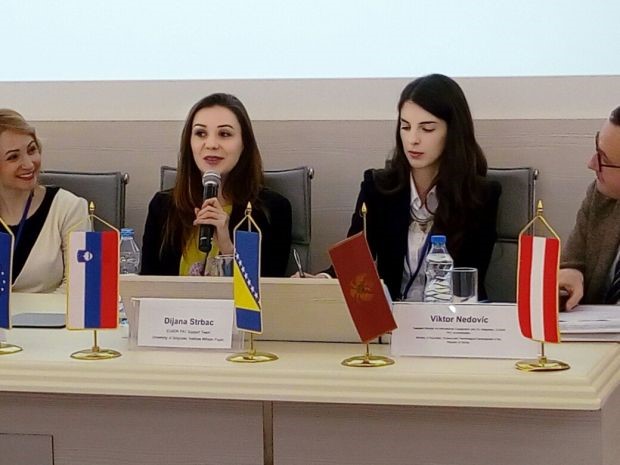 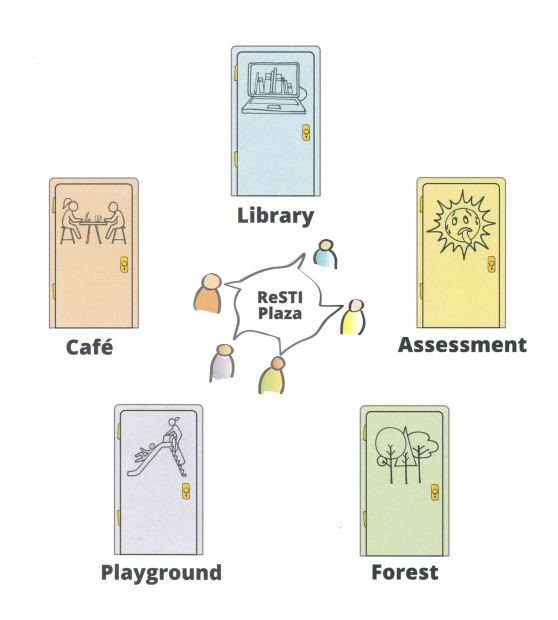 |
|
The dissemination conference of the Interreg Danube Programme Excellence-in-ReSTI (Excellence in Research, Social and Technological Innovation) was held on 1st of March in Beograd, where one of the main topics was the Capitalisation Strategy (utilization of the results of one project in other projects) of the Danube programme. The brand new approach of the e-Learning worked out in the ReSTI project named 5-doors Approach was also presented at the conference.
The different elements of the new approach represented by doors are: The Library (course content resources), The Café (interactive activities with others), The Forest (reflection activities to integrate the learning), The Playground (playful activities and game), and Assessment (to test the level of the knowledge gained and/or skills acquired). Maria Baracsi representing IFKA participated in the panel discussion as the leader of the Thematic Pole 3 of the Capitalisation Strategy of the Interreg Danube Programme.
|
|
| |
 |
CAPITALIZATION EVENT AND EUSDR PAC8 STEERING GROUP MEETING IN BUDAPEST
|
| |
|
On the 8th March 2018, IFKA Public Benefit Non-Profit Ltd. for the Development of the Industry, SENSES coordinator, is hosting the upcoming Capitalization Workshop in Budapest. The event brings together Thematic Pole 1 - an Innovative ecosystem for SMEs, Thematic Pole 2 – RDI framework support, Thematic Pole 3 – Entrepreneurial learning systems and Thematic Pole 9 – Education governance leaders as well as EUSDR PAC7 Knowledge Society and PAC 8 SME Competitiveness representatives. Furthermore, the Capitalisation event for the Poles 1,2,3,9 of the Danube Transnational Programme and the Priority Areas 7,8,9 will be accompanied with EUSDR PAC 8 Steering Group meeting scheduled for the afternoon. Agenda of the events will be published soon.
|
|
| |
 |
TP3 CAPITALIZATION POLE AT THE MADE IN DANUBE PROJECT’S POLICY DIALOG EVENT AND 11TH FORUM FOR INNOVATION EVENT
|
| |
|
We are happy to announce that Thematic Pole 3 Entrepreneurial Learning Systems was invited and successfully represented at the Policy Dialog Event of the Made in Danube INTERREG Danube project in Bucharest on the 24th and 25th May 2018. TP3 was represented by colleagues of the South Muntenia Regional Development Agency, who presented the achievements of the thematic pole during the Cross-fertilisation Innovation and Technology Transfer Workshop. Moreover, interactive sessions were also facilitated at the end of the workshop by the organizers after the presentations.
|
|
| |
 |
DTP CAPITALISATION STRATEGY HANDBOOK HAS BEEN PUBLISHED RECENTLY
|
| |
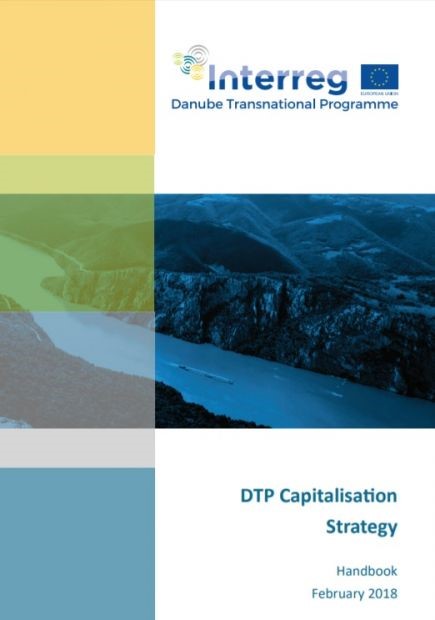 |
|
We are happy to announce that the DTP Capitalisation Strategy Handbook has been already accessed for days. The aim of CSs is to share the new development ideas and experiences of partners with synergy realisation in the Duna Region. The editors, namely Joint Secretariat and Managing Authority answered the important questions emerged during the implementation of the CS Handbook.
The DTP Capitalisation Strategy Handbook is available HERE. Under each Thematic Pole, more information can be found HERE.
|
|
| |
 |
FAIR COMPANY PROJECT
|
| |
|
A project called „Fair Company“ started back in 2016 and works as a platform for companies and NGO’s wanting to run their business sustainably, based on Fair Index. We asked Lenka Dočkalová, the initiator of the project if the platform is linked to the social economy and what are the benefits for the members.
Q: The companies that run sustainable businesses are usually social entreprises. Do you consider Fair Company project an umbrella organization of social entreprises?
A: In a way, yes. Fair Company is a platform for entrepreneurs who want to run their business differently and their utmost priority is not the maximum profit. The reason why they run their business is usually to solve some kind of problem while keeping the negative impact as low as possible. Finances are important, but they are not the raison d'être of the company.
Q: The plaform revolves around principles of fairness that should be observed by the companies. Why do you actually launched such a project?
A: There are multiple areas we focus on and these should be all observed by companies, in the ideal case. However, we understand that the companies might not fulfil all the criteria at once or at the same time. We have created so-called Fair Index that takes into account parameters like the health of the company, relations to employees, to customers, to the community and last, but not least, its attitude to the protection of the environment.
Q: The above-mentioned Fair Index is filled-in by the company itself. How do you verify the company comply to the index conditions?
A: We created a working group consisting of members of the founding companies. Whenever we receive a new application, the working group then evaluates the provided data, taking into account statutory documents, owner structure and other information. Then we provide the company with the feedback if it already complies with the Index or if some further improvements are needed.
Q: The companies that would like to become a member have to pay the membership fee. What do you offer for the fee?
A: It depends on the package they choose – the basic is the publicity of the company on the project website, its promotion through social media which are gaining more and more publicity. They are also allowed to publish blogs on the website. Also, personal networking has shown to be very welcome and efficient. We meet about eight times a year on a half-day conference on a common topic. We invite experts, representatives of the members and also general public to take part. Last but not least, we offer online experience exchange platform that is getting more and more useful as the number of member increases. Recently, we also started excursions to the member companies to see how such a company works and how it reaches its goals.
Q: How many members of the Fair Company project currently has?
A: Currently, we have over 60 member companies, which is quite a success after a year of operation. Moreover, I very appreciate that the scope of the companies is very diverse – we have food producers, chemist’s shop and producer, a photographer, insurance company or cosmetics manufacturer. This wide range of companies provide large knowledge and experience base and I would like to keep it as diverse as possible.
|
|
| |
| |
SOCIAL INVESTMENT, VENTURE PHILANTHROPY, IMPACT INVESTMENT CONFERENCES AND EVENTS IN CEE
|
| |
|
|
Summer School on Social Innovation
|
|
Date: 24-28th September 2018; venue: Budapest, Hungary
|
|
| |
 |
SENSES CONTACTS
|
| |
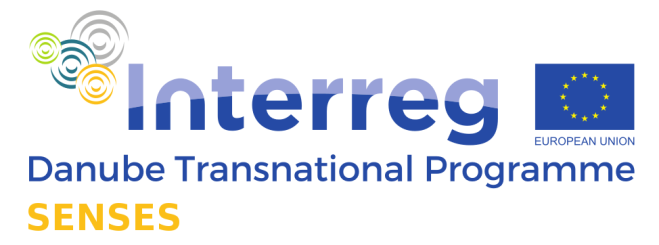 |
|
SENSES Lead Partner:
IFKA Public Benefit Non-profit Ltd. for the Development of Industry
1062 Budapest Andrássy út 100. Hungary
Web: http://www.ifka.hu
Tel.: +36 1 312 2213
E-mail: info@ifka.hu
Contact: Mária Baracsi
Tel: +36 30 400 3268
E-mail: baracsi@ifka.hu
|
|
|
|
|
| |
|
If you have received this newsletter, you have been included on one or more of the Danube Transnational Programme/projects postal mailing lists. We are committed to respect and protect the privacy of personal data collected. We regard your personal data as confidential information and will never communicate it to third parties. Your personal data are used mainly for the express purpose of receiving the newsletter. Your mailing details may also be used by the DTP and its projects for information and dissemination purposes strictly related to the programme and its projects. If you prefer not to receive more of this newsletter and your data not to be used for dissemination purposes, you can unsubscribe by sending a reply email.
|
|
|
|
|
|
